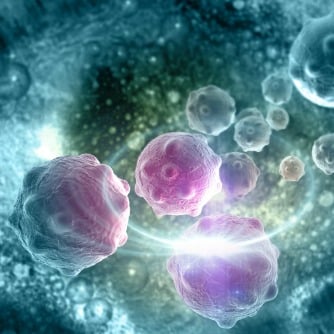Cancer researchers have discovered that a new treatment for tumor patients may actually be encouraging the growth of malignant cells. A team from the Imperial College in London, England published supporting evidence of this occurrence in the January 2017 edition of Nature Communications journal. Dr. Nadia Guerra, professor in the Department of Life Sciences at Imperial, led the study.
Immunotherapy for Cancer Treatment
Immunotherapy is the treatment of various diseases and disorders by boosting the body’s natural ability to fight these invaders. Cancer experts recently began using immunotherapy drugs to enhance patient’s abilities to dissolve tumors without surgery or radiation. Clinical trials have shown great success in treating advanced forms of many types of cancers, including metastatic melanomas. Researchers are experimenting with a variety of immunotherapeutic drugs and learning to customize them to target specific cancers.
The study at Imperial College focused on an immunoreceptor called the Natural Killer Group 2 member D (NKG2D). These molecules live on the surface of immune cells. When a normal cell becomes infected, it sends a molecular signal that is picked up by NKG2D molecules. The alerted immune cell then chemically destroys the infected cell, thus protecting surrounding cells from infection.
Dr. Guerra participated in previous studies that proved NKG2D molecules also respond to the cancerous cells in tumors.
Clinical Studies
Inflammation is a natural part of the body’s immune response. NKG2D increases the inflammation response, which has a negative impact on chronic disorders. In patients with inflammatory conditions like Crohn’s Disease NKG2D attacked normal cells rather than infected ones.
Seeking evidence that inflammation from NKG2D might encourage the growth of cancerous cells, Dr. Guerra’s team used tested inflamed, cancerous cells from the livers of lab mice. Human and mouse immunoreceptors are similar enough to provide accurate correlations.
In mice with inflammatory cancers, tumors were shown to grow faster in those with NKG2D when compared with those whose NKG2D had been suppressed. Immune cells continuously destroyed healthy liver cells. The body’s natural response is to grow new cells to replace them. This rapid reproduction increases the risk of genetic mutations that further weaken the organ to infection.
Conclusions and Further Research
Though NKG2D shows promise in the treatment of many types of cancer, other therapies will need to be researched to treat cancers of the liver and colon, and patients with other chronic inflammatory conditions. Dr. Guerra encourages future research in prescribing, dosing, and administering these types of therapies to be most beneficial for treatment and prolonged remission.




